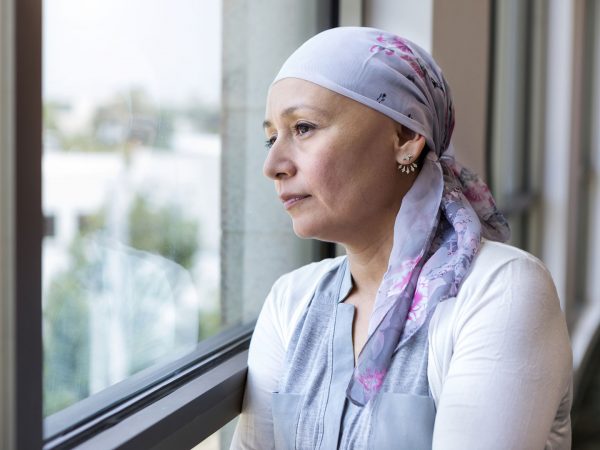Does HRT Cause Breast Cancer?
I understand that taking hormone replacement therapy (HRT) raises the risk of breast cancer, even after women stop taking it. Can you tell me how long this risk continues and how high it is?
Andrew Weil, M.D. | October 7, 2019

A new investigation from the UK found that the risk of breast cancer is higher than normal among women who used hormone replacement therapy (HRT) to deal with hot flashes and other symptoms of menopause. The researchers reported that the increased risk continues for about 15 years after a woman stops taking the hormones. These findings come from an analysis of information on more than 100,000 women with breast cancer who participated in 58 epidemiological studies from around the world.
Results showed that the breast cancer risk differs depending on the type of HRT used. The researchers found that the risk for women of average weight between the ages of 50 and 69 who never took HRT was 6.3 per 100. They projected that 83 out of every 1,000 women who use estrogen plus daily progesterone would develop breast cancer (that works out to an absolute increase of one out of every 50 of these women). Of those who use estrogen plus intermittent progesterone (for 10 to 14 days per month) 77 of every 1,000 women (or an increase of one in every 70) would develop breast cancer. The risk is a bit lower for those who use estrogen only. (Unless a woman has had a hysterectomy, taking estrogen alone raises the risk of endometrial cancer; progesterone is added to lower that risk.)
The only type of HRT not linked to an increased risk of breast cancer is topical estrogen used to treat vaginal dryness, burning, or itching and pain with intercourse. About six million women in North America and six million in Europe use HRT. Five years of use is now common, as opposed to 10 years in the past.
The new study is not the first to link HRT use with an increased risk of breast cancer, but it is the first to look at the risks presented by different types of HRT as well as the long-term risks after women stop using the hormones. The researchers found that the risks during and after HRT depend on the length of time women take it. For those who take the hormones for five years, about half the excess risk occurs while women are on HRT. The other half persists during the following 15 years. Little excess breast cancer risk was seen among women who used any form or HRT for less than a year.
I advise women who need help in managing menopausal symptoms to use alternative remedies. The herb black cohosh (Cimicifuga racemosa) has been well studied for the treatment of hot flashes and other symptoms. Although it doesn’t reliably work for all women, it has few side effects. Another option is to eat two daily servings of whole soy foods (edamame, tofu, tempeh, soy nuts or soymilk). While this, too, doesn’t help everyone, a review of 19 studies involving more than 1,200 women by researchers at the University of Delaware concluded that eating whole soy foods reduced the frequency of hot flashes by 20.6 percent and the severity by 26 percent when compared to a placebo.
Andrew Weil, M.D.
Source:
Raja Dhar et al. “Type and timing of menopausal hormone therapy and breast cancer risk: individual participant meta-analysis of the worldwide epidemiological evidence.”The Lancet, August 29, 2019 DOI: 10.1016/S0140-6736(19)31709-X












